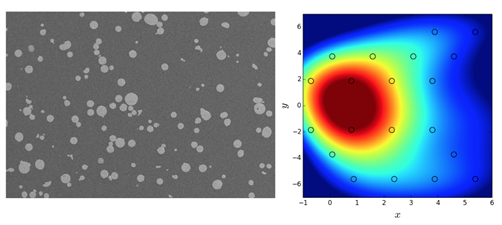A multidisciplinary team of researchers from the Texas A&M Engineering Experiment Station (TEES) has partnered with higher education institutions from across the southern United States to form the Transportation Consortium of South-Central States (Tran- SET), a research consortium funded by the Department of Transportation (DOT).
The researchers from TEES will focus on projects associated with the use of multifunctional materials in new component construction, remote sensing of signals potentially generated by these materials, development of new environmentally friendly cement alternatives and the understanding and investigation of corrosion in aging infrastructure components.
Dr. Ibrahim Karaman, Chevron Professor I and department head in the Department of Materials Science and Engineering at Texas A&M University, will lead the TEES team.
“The consortium has the potential to highlight next generation materials needed for safer and smarter transportation infrastructure,” said Karaman. “We need new and improved materials to develop our infrastructure and I’m excited that our faculty will be joining other research from across several southern states.”
Dr. Darren Hartl, assistant professor in the Department of Aerospace Engineering, will work with Karaman to design optimization and development of embedded smart material sensors.
“I am excited to work with this local Texas A&M team in addressing materials and mechanics challenges in an area that is new and exciting to all of us,” Hartl said. “I also look forward to our interactions with the other Trans-SET members.”
Dr. Aydin Karsilayan, associate professor in the Department of Electrical and Computer Engineering, will develop new methods for broadcasting sensor signals at low powers.
Dr. Miladin Radovic, associate professor and associate department head in the materials science and engineering department, will develop new polymer-based concrete substitutes for reduced greenhouse gas emissions.
Dr. Homero Castenada, associate professor in the materials science and engineering department, will be involved in addressing new methods for corrosion control and mitigation in existing transportation structures.
Dr. Marwa Hassan of Louisiana State University will lead Tran-SET, which will address novel materials and innovative construction methodologies as applied throughout the transportation infrastructure. It will also include economic limitations by considering research topics with strong potential for transition to implementation. The DOT will support the consortium with $2.5 million for the first year and determine future funding based on research success.
In addition to TEES, other members of the consortium include Arkansas State University, Baton Rouge Community College, Navajo Technical University, New Mexico State University, Oklahoma State University, Prairie View A&M University, Texas A&M University, The University of New Mexico, The University of Texas at Arlington and The University of Texas at San Antonio.
Preliminary results include experimental prototypes of shape memory alloy sensory particles embedded in a structural material (left) and the ability to computationally locate damage as sensed by these particles (right).
Contributing author: Lorian Hopcus
